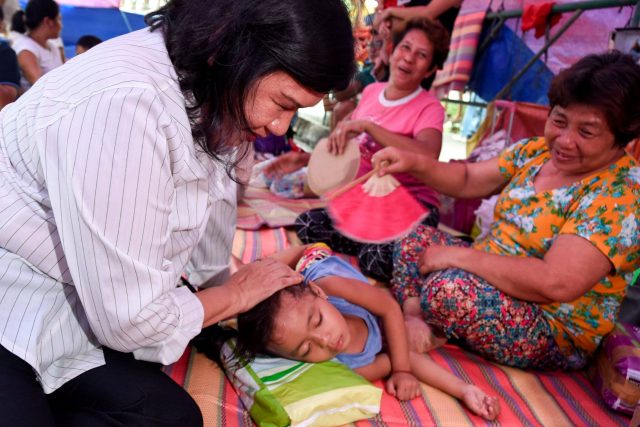MANILA, Philippines — The agency responsible for efforts to combat poverty is itself urging the reform of the government’s anti-poverty policy with the launch of a book which argues that poverty eradication should be the centerpiece of economic, social and environmental policies.
“We need to create decent and sufficient employment with living wages to improve the quality of life of most Filipinos,” Secretary Liza Maza, head of the National Anti-Poverty Commission, said Thursday at the launch of “Reforming Philippine Anti-Poverty Policy,” which caps a year’s work by the agency’s secretariat.
The book pushes for the creation of decent and sufficient jobs and incomes as the main strategy in poverty eradication, saying that low income jobs are the biggest factor in the country’s inability to significantly reduce poverty.
It also highlights the importance of structural transformation of the economy, including agriculture and industrial production, as the long-term basis of national development goals.
“We hope that this book will inspire meaningful debates among policy-makers and advocates, change the way we see the poor and poverty, and usher in a comprehensive and integrated approach to poverty eradication this new year,” Maza said.
“Our self-reliance as a domestic economy has been drowned in an export-oriented, import-dependent industrial strategy, allowing foreign monopolies to squander our natural resources and benefit from cheap labor,” Maza noted as she batted or the regulation of foreign investments to allow the creation of domestic industries.
“Many Filipinos are still trapped in poverty and inequality because administration after administration, we have subscribed to the same neoliberal framework that has been proven as a development failure all over the world. Free-market economics failed to develop our local agriculture and industry,” she added.
At the same time, she warned against pegging poverty on income levels alone, pointing out that the poor suffer from other forms of deprivation, particularly of the most basic needs — food, shelter, health, work and education.
The book also bats for a “rights-based” approach to poverty eradication, one that addresses structural inequalities and upholds the right of the people to participate in policy and decision-making processes.
“Poverty is an infringement on human rights. Failure to recognize this resulted in band-aid anti-poverty programs that only perpetuated a vicious cycle of poverty among Filipino families,” Maza stressed.
Earlier, Maza also said the generation of sufficient employment is the best way to ease the diaspora of Filipinos who risk “hazardous and insecure working conditions” in the search for better fortune abroad.
The latest government data shows there are anywhere from 2.2-5.4 million overseas Filipino workers, counting only those who are properly documented.
The NAPC noted that “while overseas remittances remain a top contributor to the country’s economy at 9.8 percent in 2016, the long-term sustainability of reliance on remittances raise important questions on the country’s labor export policy.”
It noted that there are almost 4,000 OFWs jailed around the world, including Mary Jane Veloso and around 130 others on death row, and another 625 under investigation for various offenses.
“Tens of millions of Filipinos remain poor, and thousands leave our country every day. Previous anti-poverty measures have failed to recognize the role of developing domestic agriculture and industry in producing jobs that will bring home our countrymen who we call our ‘bagong bayani’,’” Maza said as she noted that anti-poverty programs are disconnected from macroeconomic policy-making.
“Now more than ever, we need jobs, jobs, jobs, so our people can escape from hunger and poverty,” she added.










